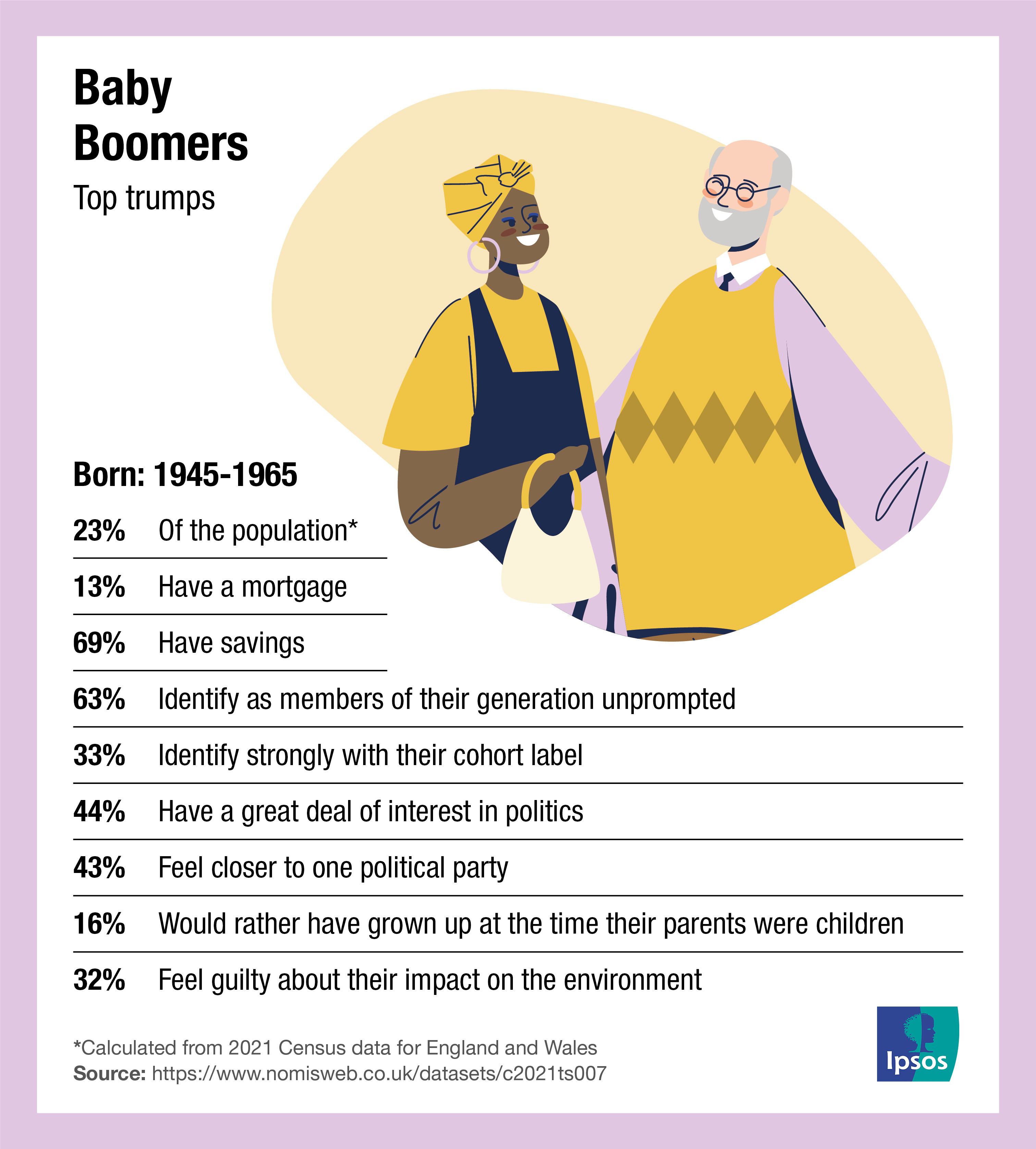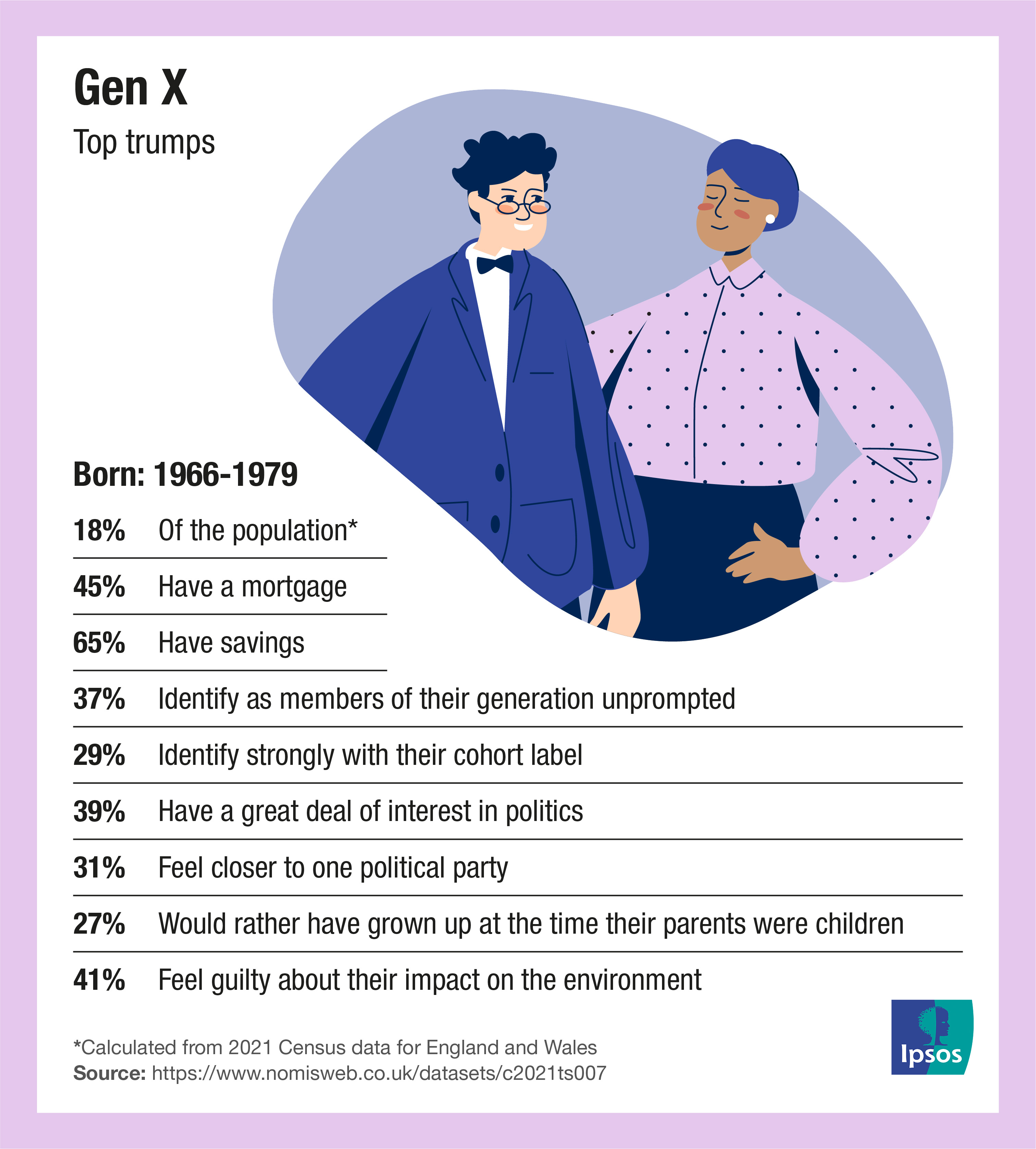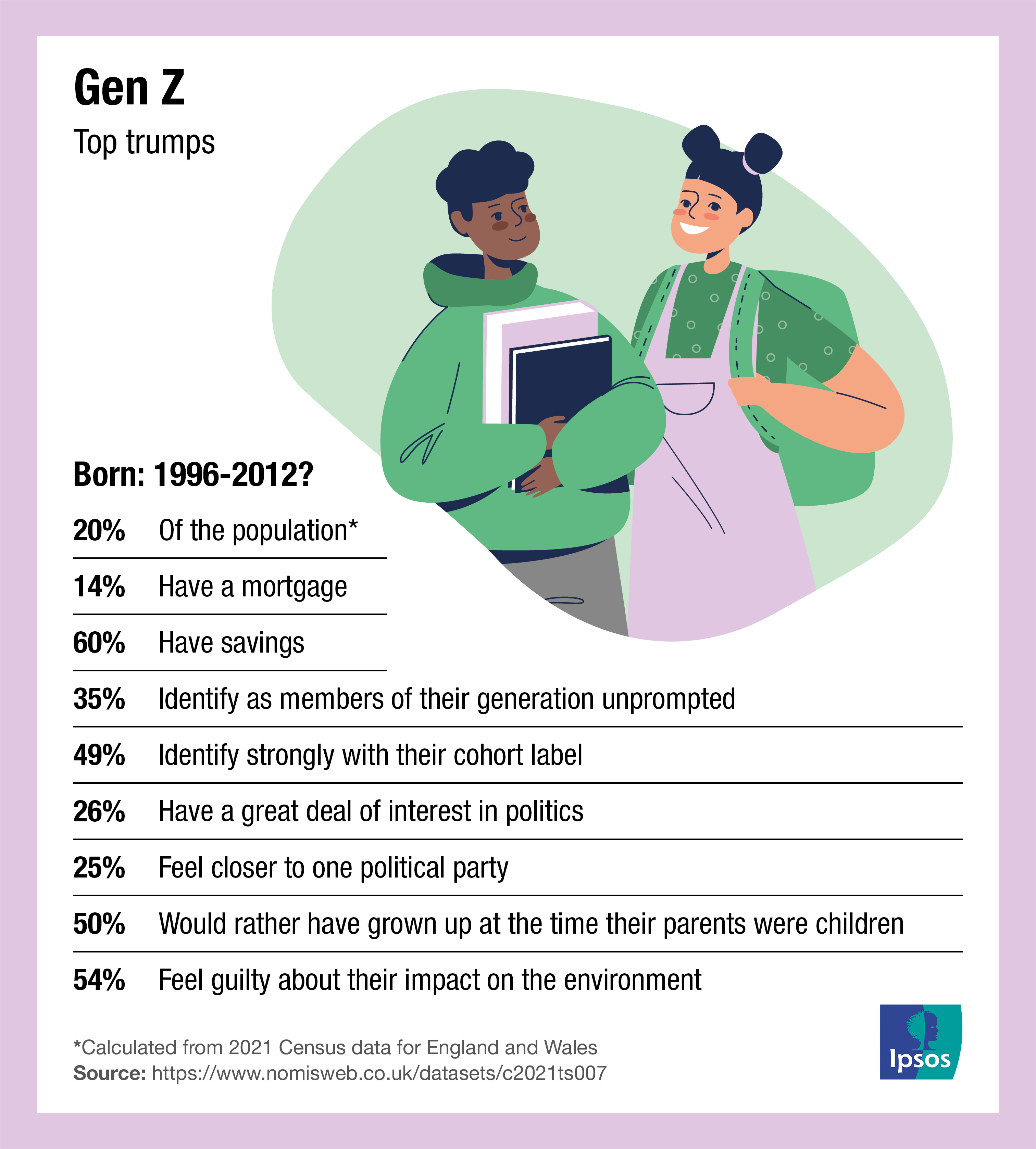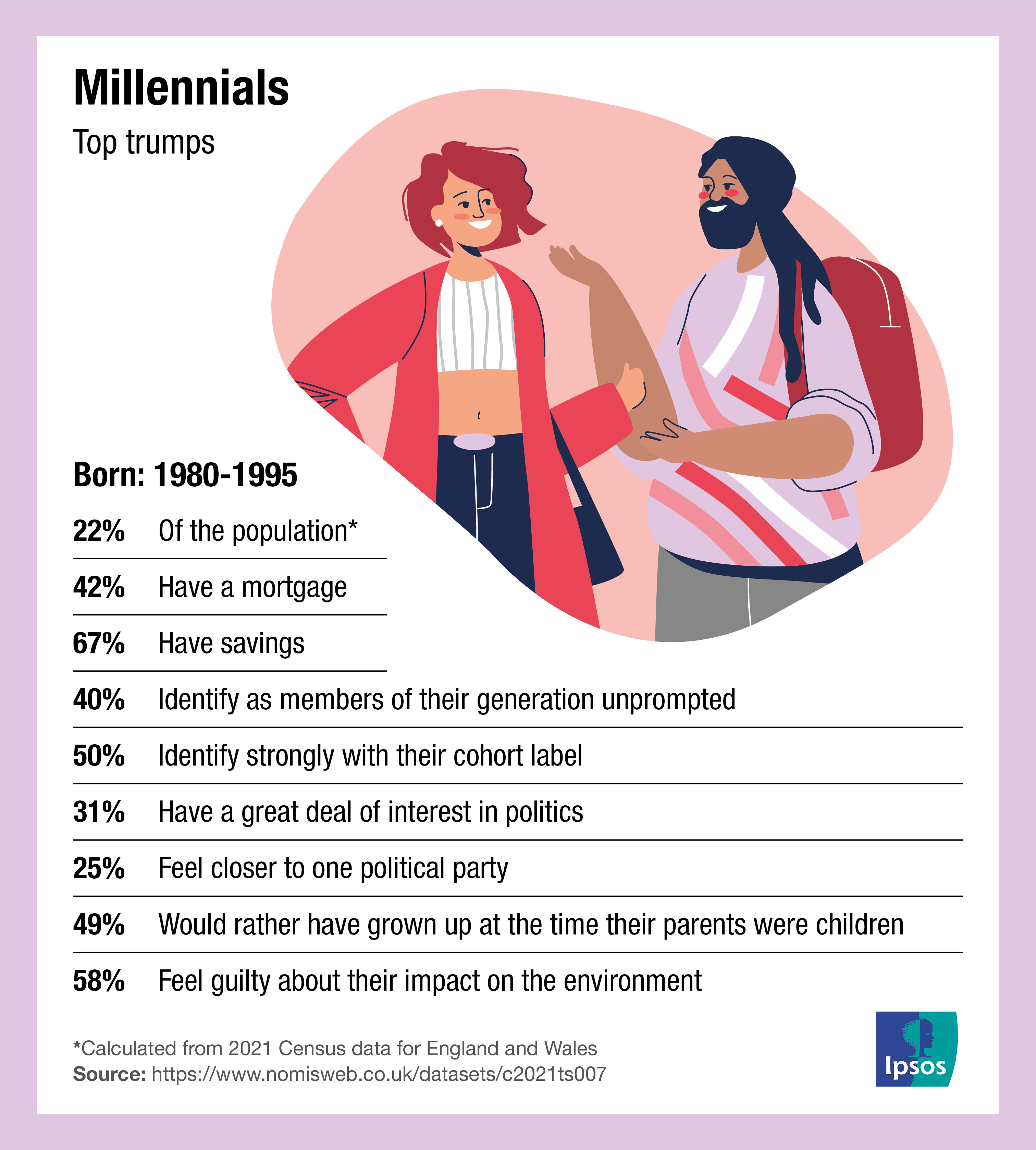Generation Z - do they exist and what influences them?
Key findings include:
- Generation Z are not the “greenest generation” – instead there has been a sharp rise in environmental concerns across all generations. However, they are perceived as such by the British public, and we find that Gen Z and Millennials are far more likely to feel guilty about their impact on the environment than older groups.
- Gen Z are the most changeable in their attitudes such as if God exists, down to which supermarket they like to use.
- Generation Z have the most liberal values – they are less in favour of censorship, long sentences for criminals compared with millennials when they were the same age.
- Generation Z appear more financially optimistic than millennials when they were the same age.
Half of Generation Z in the UK would prefer to have grown up when their parents were children, a new Ipsos report has found.
Generation Z – Do they exist and what influences them provides a comprehensive outline of what we know currently about Generation Z in the UK based on long-term and high-quality data sources to track changing attitudes and values over time.
As the oldest among the generation enter their mid-twenties, become powerful consumers and begin to vote, attempts to understand this cohort are gathering pace.
Meet the generations
The consensus view in the UK is that there are six key generations in the adult population:
- Pre-War: born before 1945
- Baby Boomers: born 1945 – 1965
- Gen X: born 1966 – 1979
- Millennials: born 1980 – 1995
- Gen Z: born 1996 – 2012
- Gen Alpha: born after 2012
Different organisations can vary in where precisely they draw the lines: Millennials can start a few years earlier or end a few years later, for instance. But, to get lost in the margins is to miss the wider analytical point that people’s views can differ dependent on the economic, cultural and political environment in which they grew up.

|

|

|

|
Gen Z remains an elusive entity, concerned with self-identification, social media literacy and radical activism for a slew of social issues.
How are Generation Z different?
Generation Z exists in the UK – but their identity is more fluid than older groups
Our research concludes that they have the weakest cohort identity of the four main generations, with many also identifying as Millennials. However, those who do identify tend to do so strongly. This means those who use the cohort name to communicate with young people will be speaking to a motivated subset rather than a wider audience.
Generation Z show signs of greater financial optimism than Millennials
There are also signs that generational income inequalities are weaker than they were in the 2000s. However, this greater sense of optimism will collide with an economic environment that may prove to be as disruptive for Gen Z as it was for Millennials. This clash is something governments and companies should be aware of as the generation continues to age.
Generation Z and Millennials share similar views on politics and policy
Gen Z are more politically interested than Millennials were at a similar age – however, this is a by-product of living in a more politicised time. Politically, Gen Z and Millennials are similarly aligned to the UK’s left-of-centre Labour party, following the powerful age-based divide in UK politics. While there are some signs of uniqueness in their views of redistribution, with a more pro-welfare view than Millennials, it is too subtle to justify political campaigns that target Gen Z specifically.
Generation Z is the most progressive with significantly more liberal values
Overall, Gen Z hold more socially and politically progressive attitudes than Millennials at a similar age and are more liberal in areas including prison sentencing, censorship, and the importance of 'traditional values'. While some of these attitudes (for instance, views on the death penalty) are driven by societal shifts, others reveal clear signs of generational differences. For example, Gen Z are half as likely to agree that censorship of films and magazines is necessary to uphold moral standards than Millennials were when they were the same age.
As important is the need to say where Generation Z are not different
There are cases where we see no difference, or the difference is entirely due to the cohort’s age rather than their specific circumstances. Environmentalism is a good example: there is a lot of writing about how younger people are more environmentally concerned, or more likely to be activists on the topic. Yet there is little to distinguish Generation Z here – we have seen a period effect with all cohorts becoming similarly more caring about the environment, and more likely to say climate change is a concern than a decade or so ago. While Generation Z are commonly considered the greenest generation, so far the data does not support this hypothesis.

![[Webinar] KEYS: What can we learn from what happened in 2025?](/sites/default/files/styles/list_item_image/public/ct/event/2025-12/keys-webinar-what-happened-in-2025-carousel.webp?itok=1gJKCCxx)
![[Webinar] KEYS: THE MIDDLE CLASS: In Crisis?](/sites/default/files/styles/list_item_image/public/ct/event/2025-10/middle-class-family-dinner-food-carousel.webp?itok=iD1QyX8n)
![[Webinar] KEYS: Global Trends - The Uneasy Decade](/sites/default/files/styles/list_item_image/public/2025-09/image/minisite/keys0925.png?itok=3oAiYcxm)